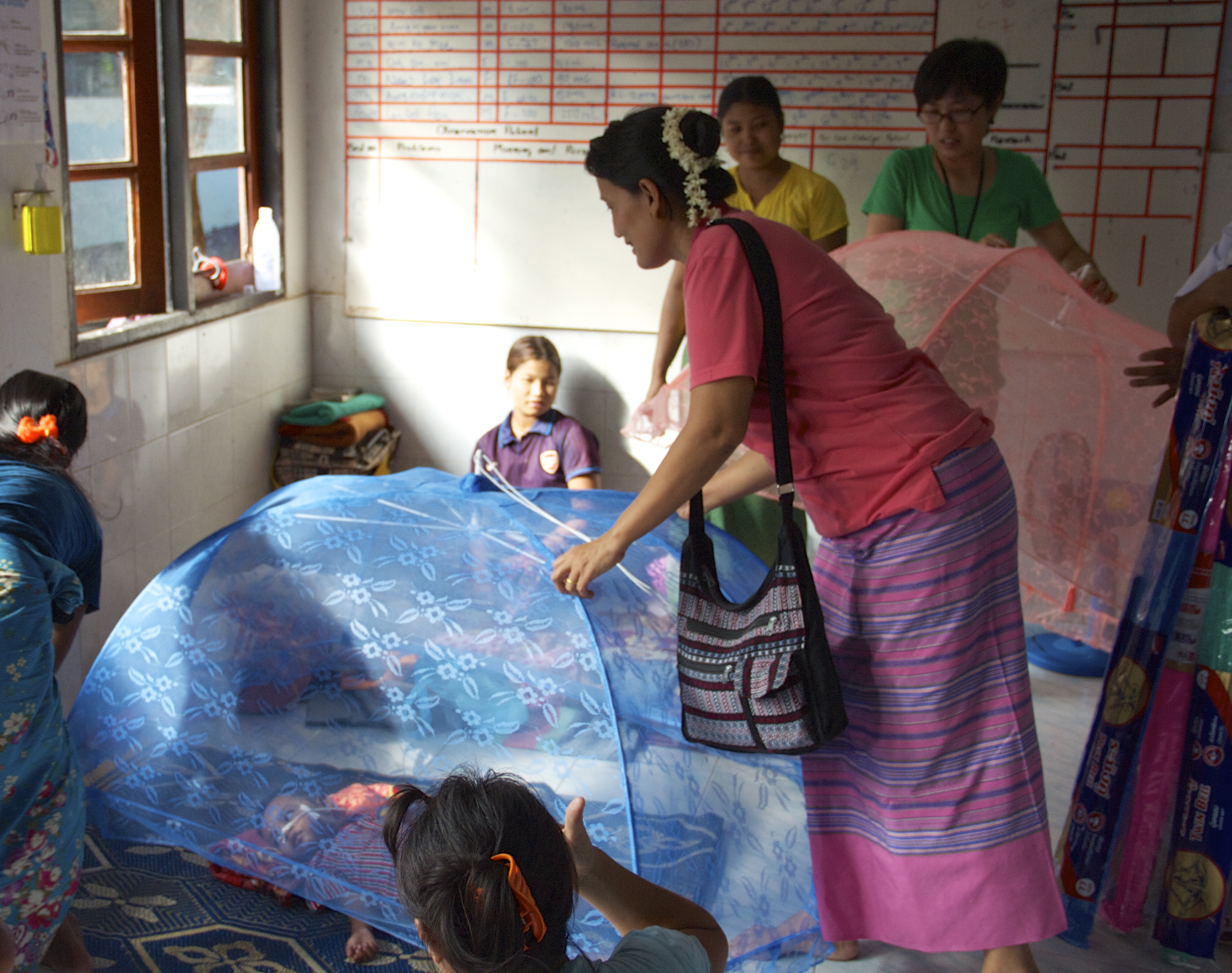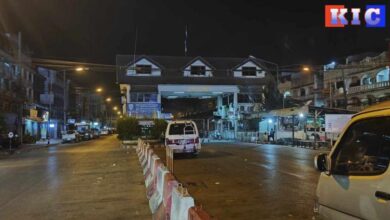STOP DENGUE 2015: ASEAN DENGUE DAY – Border Communities Battle Dengue Fever

To commemorate ASEAN Dengue Day on June 15, 2015, international aid agencies, community based groups and public health workers across the region are organizing theatre performances, school art competitions, fumigation programs and awareness campaigns.
In the Thai border town of Mae Sot community development officers are organizing door-to-door check in an effort to eliminate wastewater where mosquitos can breed.
In refugee camps on the Thai Burma border aid workers have begun fumigation of residential areas and are mounting awareness campaign to inform camp residents how to protect themselves.
Ms Aya Tabata, coordinator of the Stop Dengue – Protect Your Family campaign told Karen News that the community response to the 2015 campaign has been encouraging.
“After testing various campaign messages with community groups, we have produced a number of materials.”
Ms Tabata explained that the campaign would use video, community service announcements, newsletters, posters, stickers and leaflets for distribution.
“We found out that people wanted information that told them directly what they had to do – clean up their house and garden areas where mosquitos could lay eggs. We produced the information for the campaign in Thai, Karen and Burmese languages.”
Ms Tabata warned that 2015 could be a bad year for dengue.
“Every two years we experience bad outbreaks in the region. The last severe one was in 2013. ”
Ms Tabata said that dengue hit families hard and placed an extra financial burden on them, especially if a child has the dengue virus.
“Family members have to take time off work to look after their sick child and it can be up to 10 days – that’s difficult especially so for migrant workers.”
Ms Tabata urged health workers and communities on both sides to work together to help stop dengue.
“Mosquitos do not recognize borders and the dengue fever at the very least is painful and at its worst fatal. The Stop Dengue campaign has produced materials in languages and in a format that people can easily understand and take action – this important.”
Rural daily laborers Khun Than Cho and her husband, U Myint Aung, were planting corn in Myawaddy, Burma when they got a call that said their daughter Aye Aye was sick.
Khun Than Cho said that despite in being in the middle of the corn planting season she and her husband immediately stopped working to care for their daughter.
“Aye Aye had a high fever, abdomen pains and aches in her arms and legs. At the clinic [Myawaddy] they tested for malaria and dengue fever. After five days the medic noticed Aye Aye had a rash and it looked like she had dengue. We were advised to take her to Mae Tao Clinic in Mae Sot.”
Now feeling better after being put on IV drip to rehydrate her and given medicine to lower temperture, Aye Aye is now getting back to her old self and has started to eat food again and get out of bed.
U Myint Aung told Karen News that the family was worried sick when Aye Aye first contracted the dengue fever.
“We thought she would die, she was vomiting, couldn’t open her eyes and didn’t want food. Now she is getting better and eating – we lost about 10 days off work, but our daughters health is important, we will carry on.”




